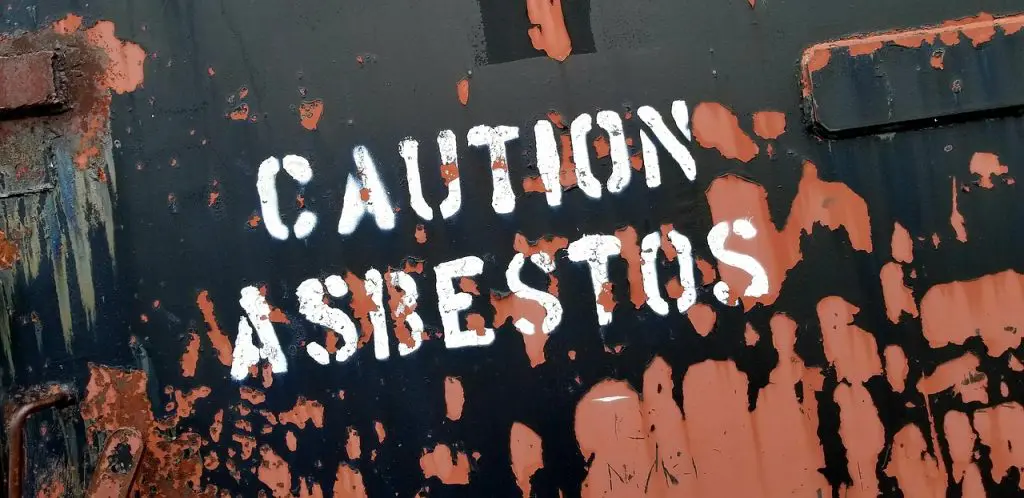
Illegal Asbestos Dumping in Northern Ireland Sparks Urgent Calls for Safer Building Practices Asbestos (a once-common construction material) has been illegally dumped 281 times in Northern Ireland since 2019, posing serious risks to both public health and the environment. While banned in the UK since 1999, asbestos remains present in many older buildings, and its […]
Asbestos (a once-common construction material) has been illegally dumped 281 times in Northern Ireland since 2019, posing serious risks to both public health and the environment. While banned in the UK since 1999, asbestos remains present in many older buildings, and its unsafe disposal highlights broader issues about how we manage legacy materials as we transition toward sustainable, decarbonised building practices.
Asbestos refers to a group of heat-resistant minerals once valued for insulation and fireproofing. It was used in roofing, wall cladding, floor tiles, insulation boards, and more. However, it was eventually discovered that disturbed asbestos releases microscopic fibres that can be inhaled into the lungs, causing life-threatening diseases.
Asbestosis (scarring of the lungs)
Lung cancer
Mesothelioma (an aggressive, almost always fatal cancer)
Symptoms can take decades to appear, making the material a long-term public health hazard.
Between 2014 and 2023, 699 people in Northern Ireland died from asbestos-related diseases.
According to data obtained by BBC News NI, asbestos is now the third most illegally dumped material in Northern Ireland, behind mixed waste and general construction waste. There have been over 3,000 illegal dumping incidents in the region since 2019.
The Antrim and Newtownabbey Council Area recorded the highest number of asbestos-related incidents (44 since 2019).
In July 2025, asbestos was found at a bonfire site in south Belfast, prompting public outcry. The Northern Ireland Environment Agency (NIEA) later removed 20kg of the material and launched a criminal investigation.
Environment Minister Andrew Muir defended the NIEA’s handling of the situation while political opponents accused the agency of inaction. Residents questioned why the asbestos was not removed before the bonfire was built.
Despite strict regulations, illegal dumping continues due to:
High Disposal Costs: Licensed asbestos removal is expensive.
Lack of Awareness: Some still do not understand the dangers.
Negligence or Profit Motive: Fly-tipping by unscrupulous contractors.
Landowners are legally responsible for securing property to prevent illegal dumping. Violators can face prosecution, heavy fines, or prison sentences.
As the UK and Ireland move toward decarbonising buildings, asbestos presents a major barrier. Many older structures scheduled for retrofitting or demolition still contain asbestos, which must be safely removed before any low-carbon upgrades can be made.
Safe removal requires specialist contractors using negative pressure units, full enclosures, and hazardous waste protocols.
Asbestos removal is resource-intensive, slowing progress toward energy-efficient housing and net-zero construction.
A national asbestos removal strategy could:
In 2022, UK MPs proposed a 40-year deadline to remove asbestos from all public and commercial buildings. Experts and charities, such as Mesothelioma UK, have called for a national task force to address the crisis.
Since 2011, the government has paid over £40 million in compensation for asbestos-related illnesses in Northern Ireland. Meanwhile, millions of pounds have been spent removing asbestos from hospitals and schools.
However, without a coherent long-term plan, piecemeal efforts may fall short.
As Northern Ireland grapples with the twin challenges of asbestos contamination and the urgent need to decarbonise buildings, it’s clear that the safe management of legacy materials is critical to future progress. The illegal dumping of asbestos isn’t just an environmental crime; it’s a public health and sustainability failure.
To build greener, safer buildings, we must first deal with what’s already inside them.
Report illegal dumping to your local council or environment agency.
If renovating, always check for asbestos before disturbing older materials.
Support policies that fund safe asbestos removal and accelerate the transition to sustainable buildings.
At All-Ireland Sustainability, we’re committed to building a greener, fairer island—together. Stay informed on the latest environmental initiatives, community action, and policy developments shaping sustainability across Ireland, North and South.
👉 Sign up for our newsletter today and be the first to hear about upcoming events, expert insights, and ways to get involved.
Whether you’re a seasoned advocate or just starting your journey, new members are always welcome—your voice matters.
Subscribe now and be part of the All-Ireland Sustainability network.